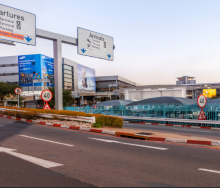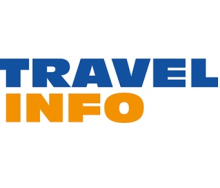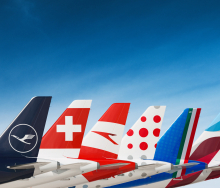GOOGLE has combined its
travel-related products –
including Google Flights
and Google Hotel – into a
single landing page called
Trips.
Users can now use Trips to
plan travel by searching for
destinations to find flights,
hotels, travel guides or
packages. Booking receipts,
itinerary outlines, confirmation
codes, and travel information
are then presented alongside
weather reports on travel
dates.
Reservations for restaurants
and hotels will soon also be
accessible through Google
Maps.
“By consolidating all
travel offerings into a single
interface, Google will no
doubt have an impact in all
markets, including South
Africa,” says Mladen Lukic,
gm of Travel Counsellors SA.
He says that despite Google’s
sophistication, it remains a
delivery channel, offering a
catalogue of products based
on certain assumptions.
Google does not have an
Iata licence and will not be
able to ticket, agrees Paulina
Klotzbücher, md of Travelstart,
and says Google functions as
a traffic marketplace.
Paulina says they do not
see Google Trips as a new
competitor because it has
been working on travel
bookings through various,
standalone planning tools
for years. “What Trips brings
to the market is a much
tighter integration across
their existing services
and, as always, optimum
personalisation for users with
services external to Trips (such
as Search, Gmail, Maps).”
Google Trips could challenge
OTAs and other digital
travel companies if it starts
prioritising the content as
it has through Google Ads.
“Google is already a key player
in developed markets where
tools such as Google Flights
have enjoyed widespread
adoption by online travel
bookers,” says Paulina.
In terms of ad buying, paying
a premium won’t always mean
one’s content is displayed
higher up on a Google service,
explains Kirby Gordon, head
of sales and distribution at
FlySafair.
“Google is pretty strict
about making sure its tool is
the most useful for the user,
so they wouldn’t allow the
results to be manipulated for
money. Remember, they charge
advertisers anyway.”
Kirby does not believe this is
a threat to agents: “If anything,
it should be a useful tool for
agents to use to quickly check
competitor rates at a glance.”
Kirby also believes that
Trips will not drive more direct
bookings but is likely to
improve site conversion rates.
“If a client was looking online,
chances are that they had
already intended to purchase
online and were never really
going to be a travel agent
customer.”
According to Kirby, Trips
could affect agents in its
connectedness. “Previously,
buying a ticket was a cold
transaction between you
and the OTA or airline. Nobody
was there to vouch for a hotel
brand, or suggest a great
restaurant in the
area or add any of the other
soft touches that travel agents
always have. It’s not quite the
same, but in some ways this
tool is starting to erode that
advantage,” he says.
“Trusted travel advisers will
continue to be relevant. Travel
agents, online or human, are
likely to be victims, perhaps
not now but in the not-sodistant future,” Mladen says.
Suppliers have already
invested significantly in
rich content structured
specifically to be recognised
and prioritised by Google. “All
industry players who conduct
business online are at risk.
Ironically many of these have
also invested significantly to
be more Google friendly,” says
Mladen.
Google Trips – friend or foe?
19 Jun 2019
Comments | 0














